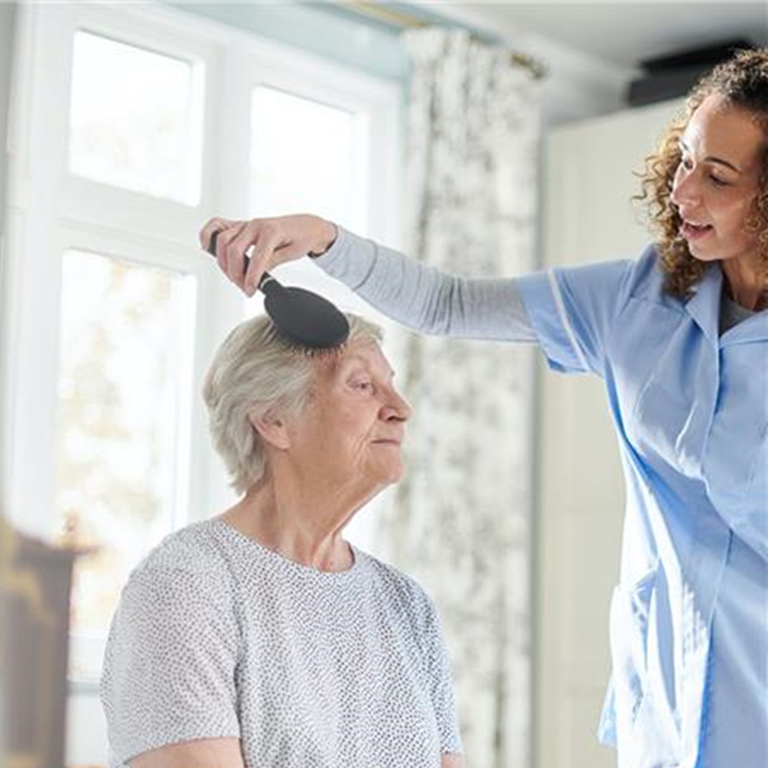If the global pandemic has taught us one thing: even with the best plans and procedures in place to prepare for a disaster, sometimes situations are beyond our control.
However, it’s critical to have robust plans that offer instructions and guidance on responding to a disaster or a potential security threat when running a care business. The consequences of not preparing for the risks associated with criminal activity, natural disasters or terrorism could be devastating for your business and those you care for.
Without identifying appropriate defences for your business by undertaking assessments and detailed planning, you could leave your business open to financial ruin. You could also expose your residents or patients to danger and unnecessary distress if you’re unable to remain open at a crucial time. This may result in negligence claims.
In 2019 a fire at a retirement home in Crewe led to the evacuation of 150 residents. Several were relocated to crisis accommodation, while others were taken to an emergency rest centre. Thankfully no one was harmed. As well as the swift response from the fire services and local community members, planning and preparation were crucial for minimising the risk and the distress caused for residents.1
Here are some precautions and processes you should have in place to protect your care business from disaster – or at least minimise the impact.
Fire safety precautions
A residential care home business in Cardiff was fined more than £430,000 for serious fire safety failings in 2020.2 The offences related to fire safety arrangements including building structure fire protection to prevent the spread of fire and smoke, inadequate fire risk assessments, insufficient smoke alarms, inaccessible, blocked fire escape routes, inadequate emergency lighting, failure to conduct appropriate evacuation drills, lack of maintenance on critical escape routes and sub-standard fire safety management. Robust management of fire safety is essential to ensure that fires are unlikely to occur. You’re legally required to carry out regular fire risk assessments.3
Managing site safety and security
Not all security threats are avoidable, but some can be prevented with the right preparation.
It is essential to assess your site’s security and remember you might need to make regular adjustments to procedures and adapt if circumstances change.
- Suspicious activity – all staff and volunteers should know when and how to report any suspicious activity in or around the facility.
- Visiting procedures – the government has issued Covid-19 guidance on care home visiting4 and supported living procedures to protect residents, staff, and visitors.5
- Covid-19 outbreak – despite following stringent staff, visitor and resident admission procedures, there will always be the risk of a virus outbreak. The British Geriatrics Society has produced a guidance document, COVID-19: Managing the COVID-19 pandemic in care homes for older people.6
- Security devices and perimeters – test locks, exterior lights, alarms and other physical devices including CCTV to ensure they’re positioned where they should be and fully operational. Carry out regular inspections of your security perimeters and key protective features of your site.
- Fire systems – should be regularly inspected and maintained. Your setting should have fully trained staff who can activate, operate, and shut them down.
- Storage of chemicals – if you are storing explosive, flammable or toxic chemicals, they should be in properly secured and inventoried areas.
- Critical locations – identify areas in your setting that require strong security, such as electric, telephone and gas units, building entrances etc.
- Storing medication – is potentially your most significant theft risk, so make sure you take precautions when securing medication storage areas.
- Issuing facility keys – keep lists or use a digital monitoring system for issued keys. Have a procedure for situations where an employee leaves your business without returning issued keys.
- Local fire service – arrange for them to visit and assess your building. They may identify potential hazards and advise on ways to suppress fires.
Planning for a disaster
Having a disaster response plan in place is the most effective way to manage unexpected situations. It’s important your staff are familiar with these procedures, so include them in any induction training for new employees.
- Develop a disaster recovery or business continuity plan. Whether you’re a domiciliary care provider, you run a care home, provide direct care or are a surgery; it’s important to make sure you have a plan that’s kept up-to-date. As well as preparing you for anything that disrupts your operations, it will also give you a back-up plan.
- Keep your critical documents such as insurance policies, in a safe place but one that’s easy to access in an emergency.
- Review your policy for off-site back-up records. Ideally, you should save and update your records and send them off-site daily.
- Be aware of which disasters are most likely to occur in your area, including weather and terrorist activity.
- Establish evacuation procedures; how you would safely evacuate and transport patients if it is necessary.
- Strong communication is essential during a disaster, so devise a policy for communicating about patients between business sites.
- Consider creating an alternative communication method for your phone service if you have issues with your main phone lines. Include key personnel contact information in your procedures, so staff members are contactable out of hours.
Having the right insurance in place is essential to protect against the risks a care business faces. Still, good planning and preparation can help prevent many of these uncertainties. Many disasters are unpredictable; make sure you prepare.
Sources:
1. https://www.theguardian.com/uk-news/2019/aug/09/crewe-retirement-home-evacuated-fire
2. https://www.localgovernmentlawyer.co.uk/regulatory-and-enforcement/406-regulatory-news/44847-care-home-business-in-south-wales-fined-432k-for-fire-safety-failings
3. https://www.gov.uk/government/publications/fire-safety-risk-assessment-residential-care-premises
4. https://www.gov.uk/government/publications/visiting-care-homes-during-coronavirus/update-on-policies-for-visiting-arrangements-in-care-homes
5. https://www.gov.uk/government/publications/supported-living-services-during-coronavirus-covid-19/covid-19-guidance-for-supported-living
6. https://www.bgs.org.uk/resources/covid-19-managing-the-covid-19-pandemic-in-care-homes
The information contained herein is based on sources we believe reliable and should be understood to be general insurance and risk management information only. The information is not intended to be taken as advice and cannot be relied upon as such.


